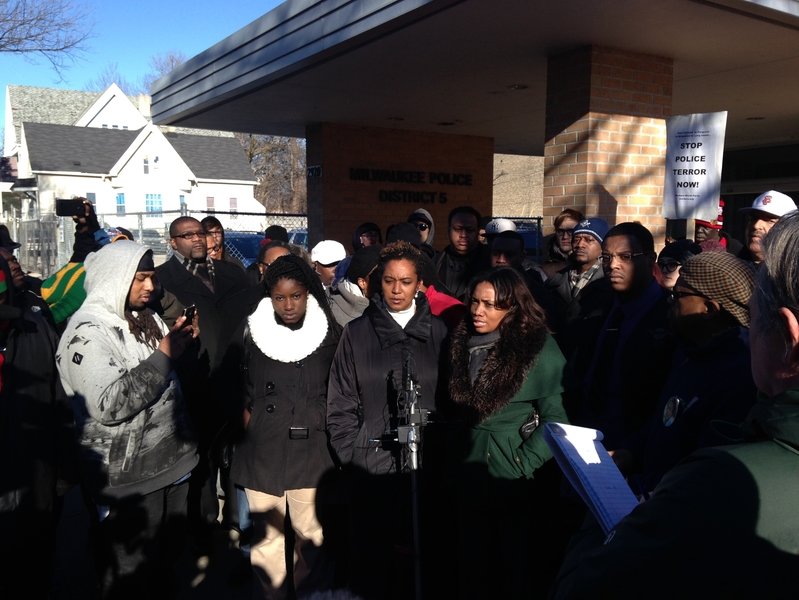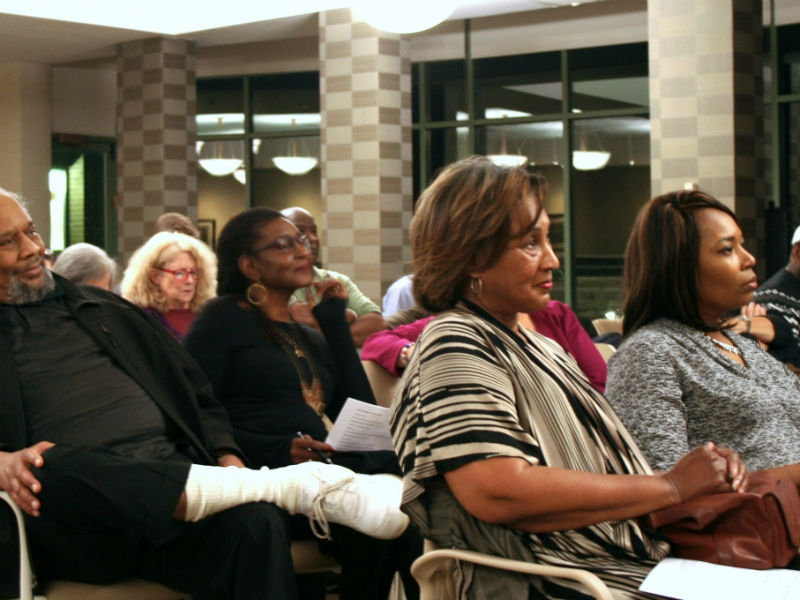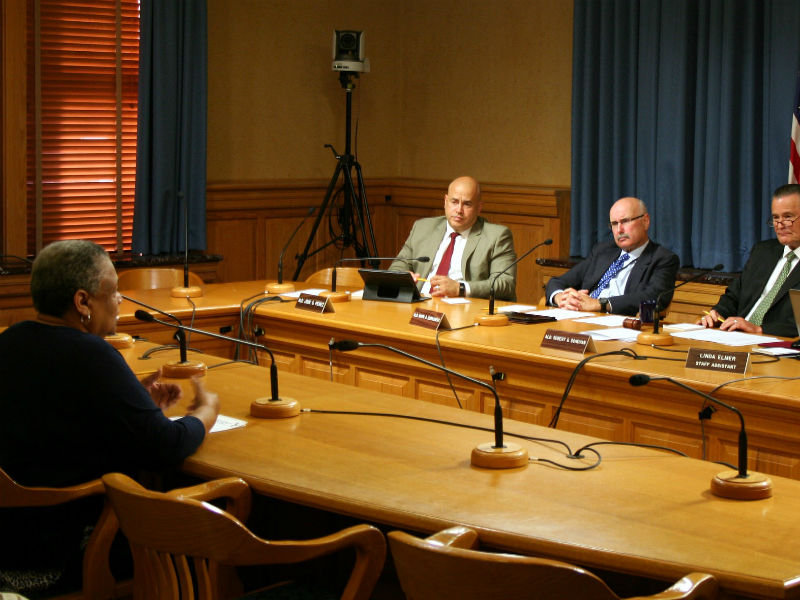Protesters gathered outside of the District Five police station Monday afternoon for an "emergency press conference" in the wake of recent arrests and accusations of Milwaukee Police Department targeting and intimidation of local protest organizers.
Leaders of Monday afternoon’s gathering originally claimed the police department issued arrest orders for three protest organizers and was actively searching out for them, leading the organizers to turn themselves in. However, according to those close to the organizers in question, their lawyer received a call shortly before the demonstration to say the police would not be taking them into custody at the current time.
Approximately 100 people – including State Senator Lena Taylor and District One Ald. Ashanti Hamilton – joined together to show support for the organizers and protesters in general.
"I felt like we were making very good progress, and this turn to turn protesters into criminals is a bad turn for us as a city," Hamilton said. "I think (the protesters) have some legitimate concerns that we, as officials, need to pay attention to."
In addition to chants for justice and speakers calling out the police department for allegedly attempting to trample on free speech, Hamilton and others discussed the hope of establishing safe zones and the Milwaukee Promise initiative, which aims to address systemic poverty, joblessness, poor health, crime and low educational achievement within city neighborhoods. The initiative's four currently identified areas – called "Promise Zones" – are Greater Old North Milwaukee, Washington Park, Division/Harambee and the near South Side.
"We’re trying to engage those who haven’t been engaged in the past," Hamilton said. "What we haven’t been able to do is get the non-traditional participants to participate in block watches and neighborhood clean-ups and having resource houses right there in the community that they can go to help resolve issues before you have to call the police. It’s a different type of engagement that we’re trying to have, so that’s why it’s important that the voices don’t get squashed before they’re able to really take root."







